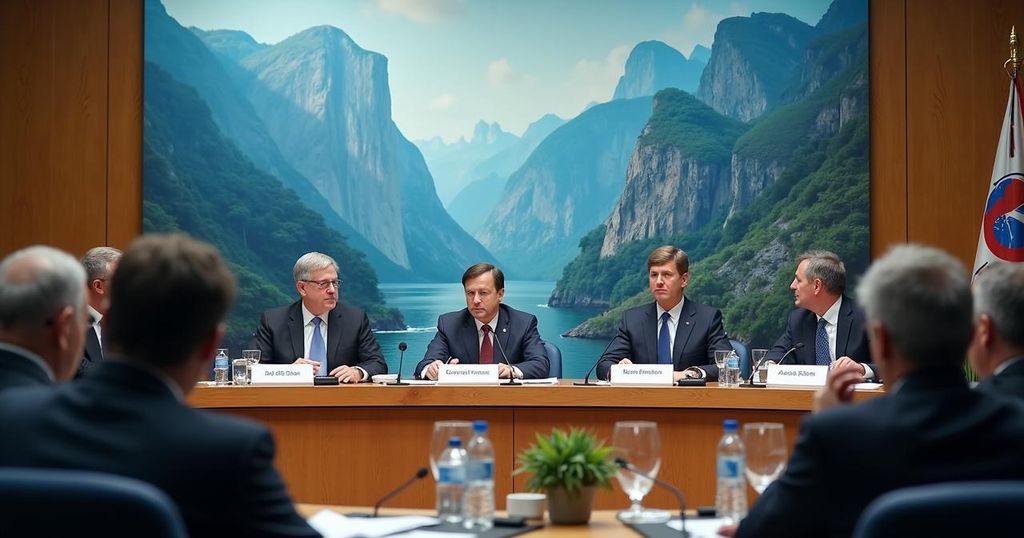Leaders at the COP29 United Nations climate summit are aiming to establish a new climate finance goal, acknowledging the trillions needed for climate action but aiming for a consensus decision in the “hundreds of billions” range. Significant international participation is anticipated as developing nations seek increased funding to adapt to climate change and reduce emissions amid rising global temperatures.
Leaders from the upcoming COP29 United Nations climate summit in Azerbaijan recognize that while the total financing requirements to combat climate change may reach trillions of dollars, a more attainable goal for a consensus decision is that of “hundreds of billions”. The summit, scheduled for next month, intends to establish a new financing goal following the expiration of the previous commitment, which mandated affluent nations to provide $100 billion annually in climate finance for developing countries. At a significant preparatory meeting for COP29 held last week, negotiators reached a historic acknowledgment that the funding needs to address climate change are projected in trillions, as stated by Yalchin Rafiyev, the chief negotiator for the COP29 presidency. Despite this realization, he emphasized that the public sector’s realistic financing capabilities would likely be confined to the “hundreds of billions” range. This discussion is especially pertinent in light of escalating climate-related disasters, from hurricanes to heatwaves, which have intensified the demand from developing countries for additional financial and technical support. These nations are seeking aid not only to adapt to climate change but also to implement strategies for reducing their own greenhouse gas emissions, particularly through investments in renewable energy technologies. Current scientific assessments indicate that global temperatures have risen approximately 1.3 degrees Celsius (2.3 degrees Fahrenheit) above pre-industrial levels, with 2024 predicted to be the warmest year recorded thus far. Experts alert that without intensified efforts, the aspiration to limit the global temperature increase to 1.5 degrees Celsius (2.7 degrees Fahrenheit) is becoming increasingly elusive. As COP29 approaches, over 100 world leaders, including 61 presidents and 38 prime ministers, are anticipated to participate in the negotiations in Baku. Notably, last year’s climate summit saw the attendance of more than 160 global leaders, underscoring the international commitment to addressing climate issues on a large scale.
The necessity for significant financial resources to combat climate change has become more pressing due to the rising frequency and intensity of climate-related disasters, which disproportionately affect developing nations. These countries require additional funding for both adaptation measures to mitigate the effects of climate change and for emissions reduction strategies that would enable sustainable development. The existing commitment of $100 billion annually is viewed as insufficient against the backdrop of actual funding needs that are projected in trillions. The negotiations at COP29 aim to create a new framework for climate finance that aligns with these escalating needs and reflects the urgency of the situation.
In conclusion, the upcoming COP29 summit is poised to address critical financial commitments required to tackle climate change effectively. While the leaders acknowledge the extensive funding needs that reach the trillions, they consider a realistic target of securing hundreds of billions in climate finance through public sector initiatives. With severe climate impacts currently being felt worldwide, particularly by developing nations, the summit’s ability to forge a new financial agreement will be pivotal in the global effort toward sustainable climate solutions.
Original Source: kfgo.com






